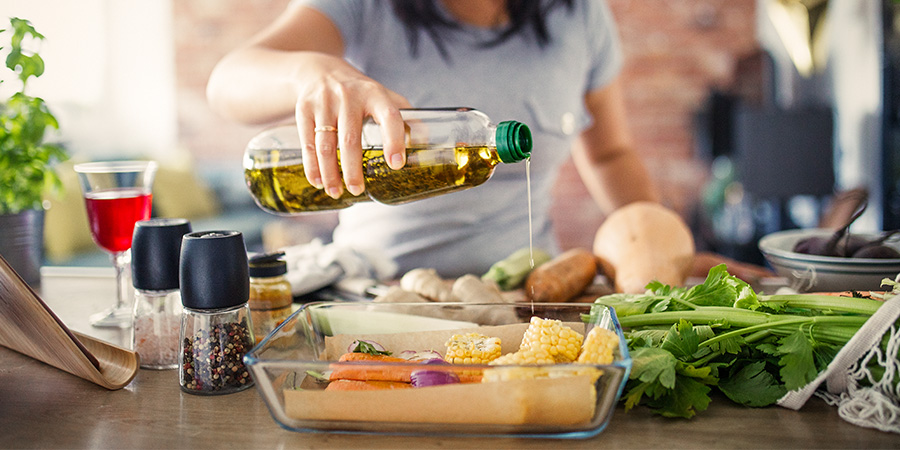Error message
Warning: unserialize(): Error at offset 0 of 216 bytes in Drupal\hg_features\Controller\APIController->export() (line 527 of modules/custom/hg_features/src/Controller/APIController.php).
Drupal\hg_features\Controller\APIController->export() (Line: 249) Drupal\hg_features\Controller\ContentAPIController->export() (Line: 461) Drupal\hg_features\Controller\NodeAPIController->export() (Line: 916) Drupal\hg_features\Controller\NodeAPIController->list() (Line: 450) Drupal\hg_mercury_card\Plugin\Block\ContentFeedBlock->__construct() (Line: 718) Drupal\hg_mercury_card\Plugin\Block\ContentFeedBlock::create() (Line: 21) Drupal\Core\Plugin\Factory\ContainerFactory->createInstance() (Line: 76) Drupal\Component\Plugin\PluginManagerBase->createInstance() (Line: 62) Drupal\Core\Plugin\DefaultSingleLazyPluginCollection->initializePlugin() (Line: 57) Drupal\block\BlockPluginCollection->initializePlugin() (Line: 80) Drupal\Component\Plugin\LazyPluginCollection->get() (Line: 45) Drupal\block\BlockPluginCollection->get() (Line: 88) Drupal\Core\Plugin\DefaultSingleLazyPluginCollection->setConfiguration() (Line: 104) Drupal\Core\Plugin\DefaultSingleLazyPluginCollection->addInstanceId() (Line: 55) Drupal\Core\Plugin\DefaultSingleLazyPluginCollection->__construct() (Line: 34) Drupal\block\BlockPluginCollection->__construct() (Line: 158) Drupal\block\Entity\Block->getPluginCollection() (Line: 147) Drupal\block\Entity\Block->getPlugin() (Line: 118) Drupal\block\BlockAccessControlHandler->checkAccess() (Line: 109) Drupal\Core\Entity\EntityAccessControlHandler->access() (Line: 329) Drupal\Core\Entity\EntityBase->access() (Line: 63) Drupal\block\BlockRepository->getVisibleBlocksPerRegion() (Line: 138) Drupal\block\Plugin\DisplayVariant\BlockPageVariant->build() (Line: 270) Drupal\Core\Render\MainContent\HtmlRenderer->prepare() (Line: 128) Drupal\Core\Render\MainContent\HtmlRenderer->renderResponse() (Line: 90) Drupal\Core\EventSubscriber\MainContentViewSubscriber->onViewRenderArray() call_user_func() (Line: 111) Drupal\Component\EventDispatcher\ContainerAwareEventDispatcher->dispatch() (Line: 186) Symfony\Component\HttpKernel\HttpKernel->handleRaw() (Line: 76) Symfony\Component\HttpKernel\HttpKernel->handle() (Line: 53) Drupal\Core\StackMiddleware\Session->handle() (Line: 48) Drupal\Core\StackMiddleware\KernelPreHandle->handle() (Line: 28) Drupal\Core\StackMiddleware\ContentLength->handle() (Line: 201) Drupal\page_cache\StackMiddleware\PageCache->fetch() (Line: 138) Drupal\page_cache\StackMiddleware\PageCache->lookup() (Line: 87) Drupal\page_cache\StackMiddleware\PageCache->handle() (Line: 48) Drupal\Core\StackMiddleware\ReverseProxyMiddleware->handle() (Line: 51) Drupal\Core\StackMiddleware\NegotiationMiddleware->handle() (Line: 36) Drupal\Core\StackMiddleware\AjaxPageState->handle() (Line: 51) Drupal\Core\StackMiddleware\StackedHttpKernel->handle() (Line: 741) Drupal\Core\DrupalKernel->handle() (Line: 19)
Warning: unserialize(): Error at offset 0 of 376 bytes in Drupal\hg_features\Controller\APIController->export() (line 527 of modules/custom/hg_features/src/Controller/APIController.php).
Drupal\hg_features\Controller\APIController->export() (Line: 249) Drupal\hg_features\Controller\ContentAPIController->export() (Line: 461) Drupal\hg_features\Controller\NodeAPIController->export() (Line: 916) Drupal\hg_features\Controller\NodeAPIController->list() (Line: 450) Drupal\hg_mercury_card\Plugin\Block\ContentFeedBlock->__construct() (Line: 718) Drupal\hg_mercury_card\Plugin\Block\ContentFeedBlock::create() (Line: 21) Drupal\Core\Plugin\Factory\ContainerFactory->createInstance() (Line: 76) Drupal\Component\Plugin\PluginManagerBase->createInstance() (Line: 62) Drupal\Core\Plugin\DefaultSingleLazyPluginCollection->initializePlugin() (Line: 57) Drupal\block\BlockPluginCollection->initializePlugin() (Line: 80) Drupal\Component\Plugin\LazyPluginCollection->get() (Line: 45) Drupal\block\BlockPluginCollection->get() (Line: 88) Drupal\Core\Plugin\DefaultSingleLazyPluginCollection->setConfiguration() (Line: 104) Drupal\Core\Plugin\DefaultSingleLazyPluginCollection->addInstanceId() (Line: 55) Drupal\Core\Plugin\DefaultSingleLazyPluginCollection->__construct() (Line: 34) Drupal\block\BlockPluginCollection->__construct() (Line: 158) Drupal\block\Entity\Block->getPluginCollection() (Line: 147) Drupal\block\Entity\Block->getPlugin() (Line: 118) Drupal\block\BlockAccessControlHandler->checkAccess() (Line: 109) Drupal\Core\Entity\EntityAccessControlHandler->access() (Line: 329) Drupal\Core\Entity\EntityBase->access() (Line: 63) Drupal\block\BlockRepository->getVisibleBlocksPerRegion() (Line: 138) Drupal\block\Plugin\DisplayVariant\BlockPageVariant->build() (Line: 270) Drupal\Core\Render\MainContent\HtmlRenderer->prepare() (Line: 128) Drupal\Core\Render\MainContent\HtmlRenderer->renderResponse() (Line: 90) Drupal\Core\EventSubscriber\MainContentViewSubscriber->onViewRenderArray() call_user_func() (Line: 111) Drupal\Component\EventDispatcher\ContainerAwareEventDispatcher->dispatch() (Line: 186) Symfony\Component\HttpKernel\HttpKernel->handleRaw() (Line: 76) Symfony\Component\HttpKernel\HttpKernel->handle() (Line: 53) Drupal\Core\StackMiddleware\Session->handle() (Line: 48) Drupal\Core\StackMiddleware\KernelPreHandle->handle() (Line: 28) Drupal\Core\StackMiddleware\ContentLength->handle() (Line: 201) Drupal\page_cache\StackMiddleware\PageCache->fetch() (Line: 138) Drupal\page_cache\StackMiddleware\PageCache->lookup() (Line: 87) Drupal\page_cache\StackMiddleware\PageCache->handle() (Line: 48) Drupal\Core\StackMiddleware\ReverseProxyMiddleware->handle() (Line: 51) Drupal\Core\StackMiddleware\NegotiationMiddleware->handle() (Line: 36) Drupal\Core\StackMiddleware\AjaxPageState->handle() (Line: 51) Drupal\Core\StackMiddleware\StackedHttpKernel->handle() (Line: 741) Drupal\Core\DrupalKernel->handle() (Line: 19)
Demystifying Seed Oils: Separating Fact from Fiction
April 11, 2025
Seed oils or vegetable oils, such as those made from sunflower, canola, and soybean, are common kitchen staples due to their versatility and high smoke points. They’re used in everything from salad dressings to frying and baking. However, questions about their safety and health effects have been amplified by claims that they harm our wellbeing. While the conversation can sometimes be confusing, separating fact from fear is important.
Understanding Seed Oils
Seed oils are extracted from the seeds of plants and are typically high in unsaturated fats. They are often used in cooking because they generally have high smoke points, meaning they can withstand higher temperatures before they start to break down and produce potentially harmful compounds. This makes them ideal for frying, sautéing, and baking.
Seed oils are extracted either mechanically (expeller-pressed or cold-pressed) or chemically.
"Mechanical extraction uses pressure to retain more nutrients but may shorten shelf life, while chemical extraction uses solvents like hexane for efficiency, though any residue left is generally considered safe," says Jana Wolff, RDN, LDN, CSOWM, Director of Nutrition for the Comprehensive Obesity Management Program at GBMC HealthCare.
Buying expeller- or cold-pressed oils is the best way to avoid even trace chemicals, but the extraction process is less important to consider than two other key factors:
- How you use them
- How fatty acids impact your health
Cooking v. Processed Foods
Seed oils are popular because they are affordable and versatile, making them a common choice in both home cooking and processed foods.
Many seed oils are rich in omega-3 and omega-6 fatty acids, which, in moderate amounts, can be beneficial for heart health. The American Heart Association cites unsaturated fats (such as those found in seed oils) as beneficial for heart health, helping to lower cholesterol and reduce the risk of cardiovascular disease. They recommend using these oils over butter, which is high in saturated fats.
Cooking with seed oils in moderation and at the right temperature can be part of a healthy diet.
“When cooking with these oils, you control the process and what goes into the dish. You’re more likely cooking lean proteins and fresh vegetables, which in and of itself is going to be more beneficial to your health,” Wolff said. “The oils provide beneficial unsaturated fats, and as long as you don’t exceed their smoke point, you won’t risk creating harmful compounds or destroying its nutrients.”
The issue arises when seed oils are used in highly processed or packaged foods. In these products, seed oils are often refined to increase shelf life and stability, which involves processing methods that can strip the oils of some of their beneficial nutrients. But more importantly, ultra-processed foods contain additives and preservatives, making the overall nutritional quality less beneficial – we can’t blame it ALL on the seed oils. The products that contain seed oils themselves are typically lower in nutritional quality.
Choosing to cook at home as opposed to takeout as well as limiting processed foods in general is one easy way to stay healthy and maintain a balanced diet.
Omega 3s and 6s
All seed oils contain some combination of omega-3 and omega-6 fatty acids. Omega-3s help reduce inflammation, improve heart health, and lower the risk of stroke. They’re found in fish, leafy greens like kale, and seeds. Omega-6 fatty acids play a role in brain health and metabolic function, but excess consumption may promote inflammation.
“The lower the ratio between these, the less likely you are to have an inflammatory response,” Wolff said.
Instead of removing seed oils from your diet altogether, choosing oils with a lower ratio, like soybean or canola oil, is a great way to maintain a healthy, balanced diet.
Making Informed Choices
Navigating the flood of studies and recommendations can be overwhelming, but following social media influencers and trendy diets isn’t the answer.
Meeting with a dietitian trained to work with patients’ specialized needs, health history, and goals can make food choices less confusing and more productive. Dietitians provide evidence-based recommendations, limiting the bias and fear-based information you may get from social media, especially if an influencer is attempting to sell something to you.
"A lot of influencers are giving you advice that's worked for them,” Wolff said. “Everyone's different. Dietitians offer objective, personalized advice based on your unique needs.”
At GBMC, the Comprehensive Obesity Management Program team will work with individuals on their personalized plan to maintain a healthy lifestyle that works for them.
Seed oils, like most foods, are perfectly acceptable in moderation. Cooking at home and avoiding processed foods is always a better alternative to ensure you are maintaining a healthy, well-balanced diet than the impossible task of eliminating one type of oil from your diet. However, dietitians recognize spending more on cold-pressed oils or cooking organic vegetables is not an attainable option for some people. Consulting with an expert is the best way to ensure you can meet your health goals with your lifestyle.



